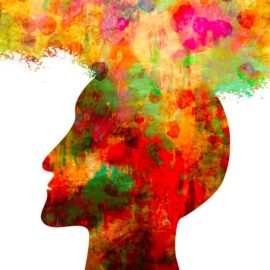

This article is an excerpt from the Shortform book guide to "The Righteous Mind" by Jonathan Haidt. Shortform has the world's best summaries and analyses of books you should be reading.
Like this article? Sign up for a free trial here .
How does the hive mentality manifest in politics? Is it beneficial or detrimental?
A hive mentality is one of group interest rather than self-interest. Just as bees work together for the benefit of the hive, we can do the same when we flip the hive switch and move from self-interest to group interest. Jonathan Haidt, in his book The Righteous Mind, discusses what this looks like in the context of politics.
Read more to learn about the hive mentality in politics, including its pros and cons.
Tribal Mentality in Politics
To Americans, the most famous political moment that activated their belief in the hive is probably John F. Kennedy’s inaugural appeal to “Ask not what your country can do for you, but what you can do for your country.”
The appeal to the hive, though, is certainly not limited to liberal politicians, or even ones who believe in democracy. The hive mentality is a natural fit for fascism—Mussolini used hivish appeals frequently to success in Italy. Fascists appeal to the nation as a superorganism in itself, where the individual becomes unimportant in service to national goals.
This might make you afraid of a hive mentality. But lots of hive behavior, like dancing together and exalting each other, comes naturally to humans and actually serves to break down social class and difference. Fascist rallies were more spectacles than anything natural like this, and they excluded many citizens from the hive because they served to reinforce class and difference.
The most successful nations are ones with lots of little hives that cross with each other—someone can be part of a family unit, a workplace, a sports team outside of work, and on and on. Nations with no hives, or those with one huge hive, are much more likely to break down, because they’ll either have no connections between their citizens or one huge connection that is tenuous.
Having some competing hives, America’s founders argued, actually helps to prevent tyranny. By existing in many small hives that compete with one another, we make sure that no hive gets too powerful. And the social capital that we get from participating in civil society—bowling leagues, church groups, and many other organizations—makes us smarter and generally more successful.
(Note: Haidt takes this argument from Robert Putnam’s 1995 essay and 2000 book “Bowling Alone.” Putnam continues in his argument to say that in America we are losing a lot of this participation in civil society due to the rise of television as constant entertainment. As engagement in civil organizations goes down, we’re less successful.)
The Pros (and Cons) of Hive Mentality
In sum, we have evolved to cooperate with members of our group and prevail over members of rival groups. Given our groupish tendencies, it’s not surprising that hive mentality is so prevalent in modern society. We were not made to love everyone equally and unconditionally—rather, we were made to feel kinship with and loyalty to those with similar traits, and our righteousness springs from this tribalism.
For some, this idea is a depressing one. But, as we’ve seen, a lot of moral good comes out of our hive mentality and behavior. Without tribes, there would be no community and no cooperation. Our groupishness pulls us out of our self-interested individualism and, for many, provides a higher purpose.

———End of Preview———
Like what you just read? Read the rest of the world's best book summary and analysis of Jonathan Haidt's "The Righteous Mind" at Shortform .
Here's what you'll find in our full The Righteous Mind summary :
- Why we all can't get along
- How our divergent moralities evolved
- How we can counter our natural self-righteousness to decrease political divides






